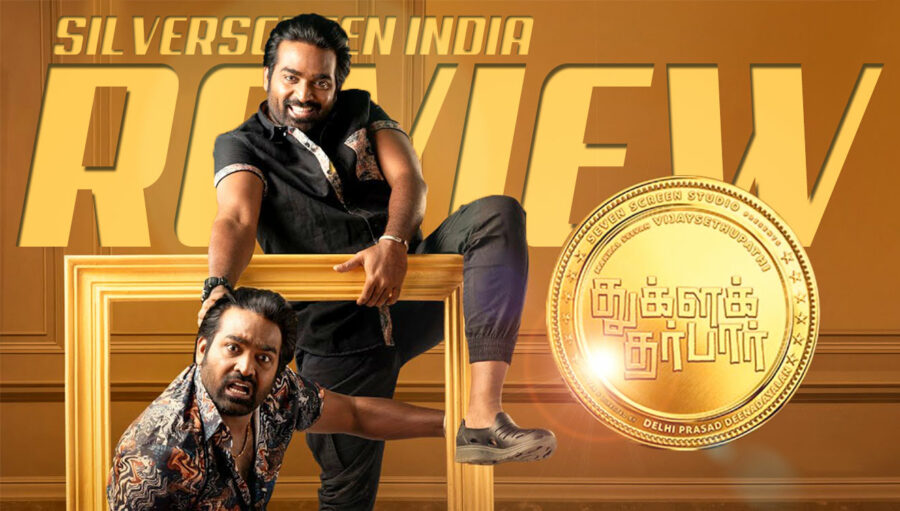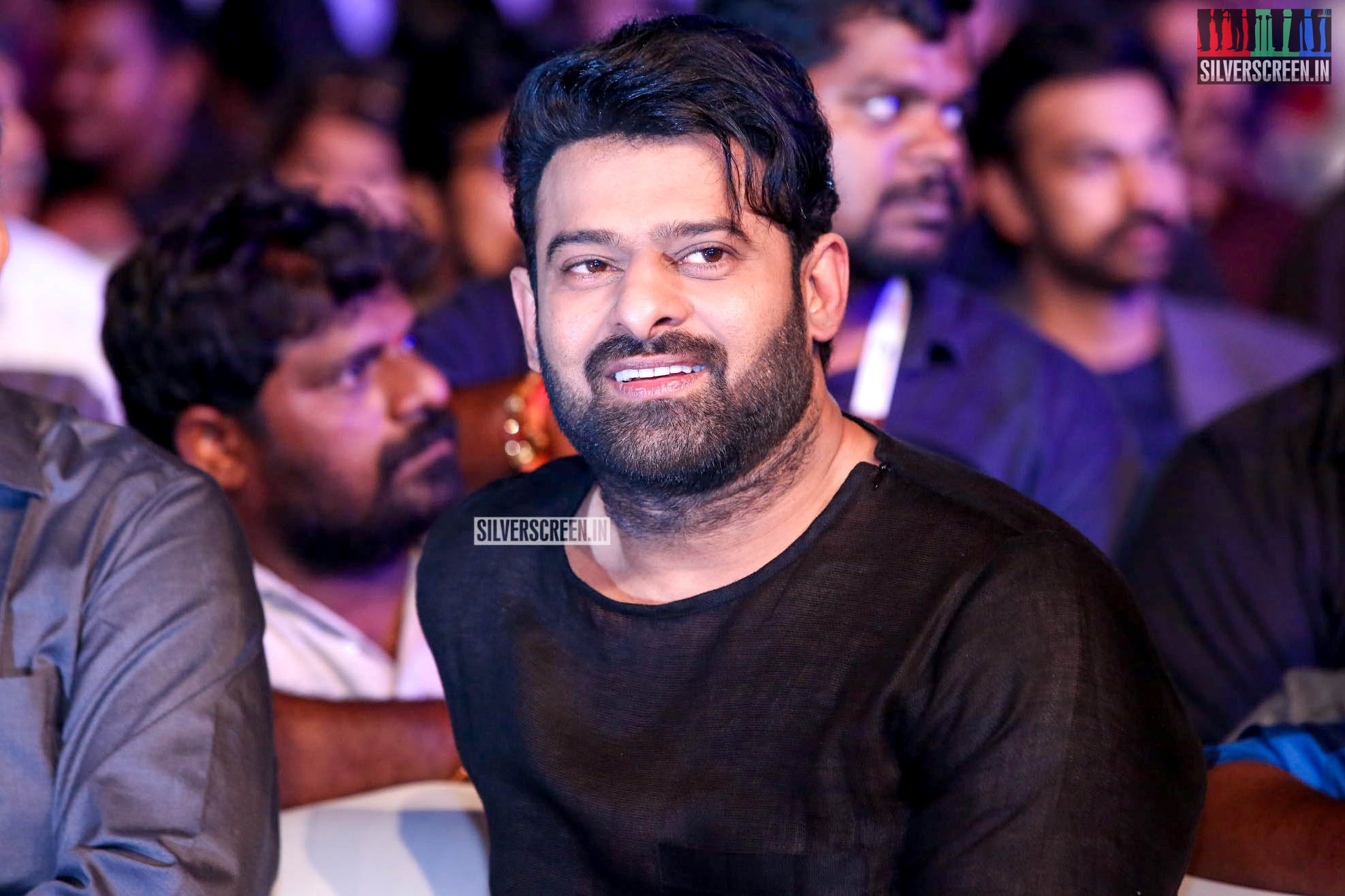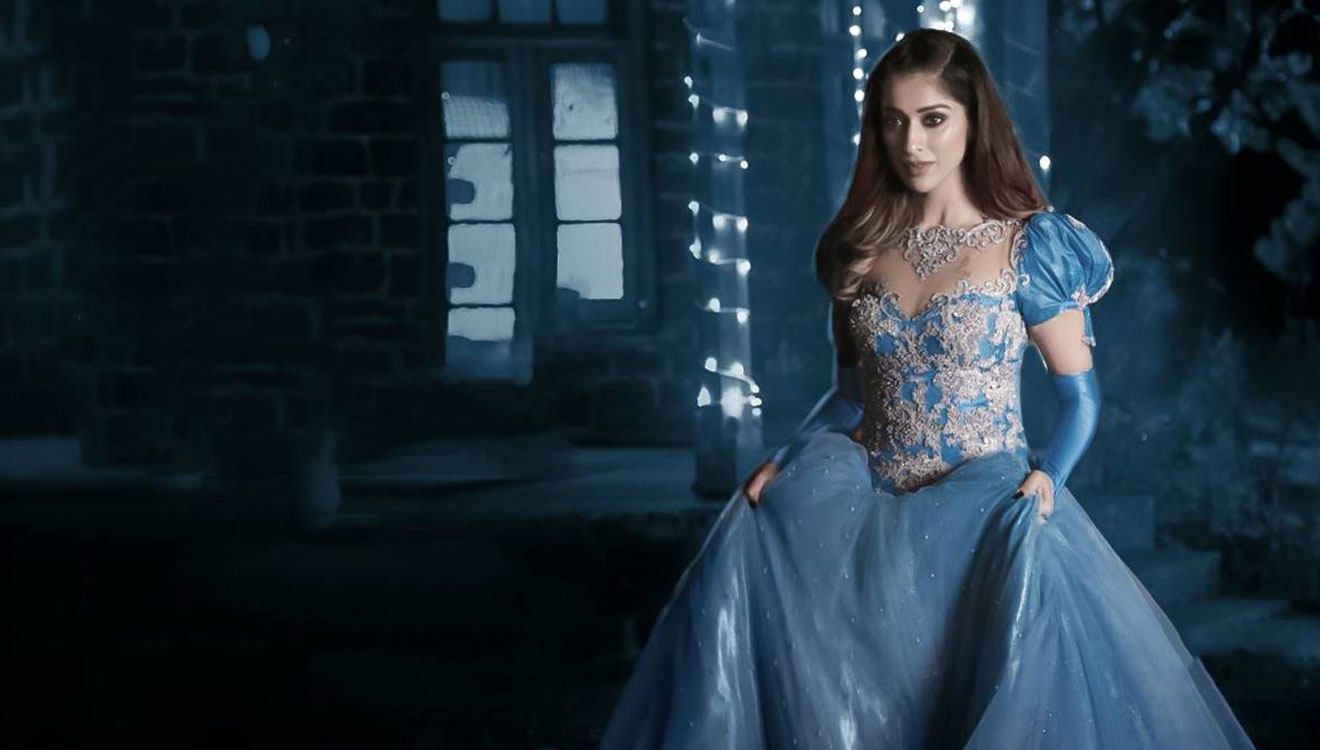Off late, a strange sense of tedium has kicked into Vijay Sethupathi’s eyes. In Tughlaq Durbar, he plays an ambitious young man, fired up to conquer the world, but Sethupathy reminds the viewer of someone who has seen and done enough. His shoulders remain drooped throughout the film, and his eyes refuse to gleam when his face breaks into a smile. He seems too drained to respond to his surroundings and to the absurd turn of events his character meets with.
This surprising impassivity of the star is just one of the many problems Tughlaq Durbar, a Tamil language comedy directed by Delhi Prasad, suffers from. Like recent films such as Mandela and NGK, the film is founded on the popular notion that the politicians are scoundrels and the electorate is a homogenous, neutral collective with a moral judgement. The narrative is a clutter of scenes that reiterate these ideas.
In all fairness, the basic premise is madcap. Singaravelan, a morally corrupt lowly politician, gets injured on his head one day and develops a syndrome that occasionally, out of the blue, switches him into a nobleman mode. A complicated duality﹣a vicious man, reminiscent of Amavasai (Amaidhi Padai, 1994), and an Anniyan-like vigilante, vying for space in one person’s conscious awareness.
When the disease takes over his mind, Singaravelan becomes a do-gooder who helps the needy and calls out the corrupt politicians he works for. The neighbours are shocked when they see the notorious brute save a puppy from a drain and carry it home affectionately. His sister Manimegalai (Manjima Mohan), whom he has always treated callously, and his bosom friend (Karunakaran) are perplexed.
When the disease starts to eat into his professional ambitions, Singaravelan feels alarmed.
Prasad employs a hyperactive visual style in the film’s former half to portray Singaravelan’s personality and the fateful incident that leads to the setting in of the disorder. The background score by Govind Vasantha isn’t exceptionally wild but amusing. In the scene where the disease first appears, shadows are long and saturated, signifying phantasmagoria. Perhaps the disorder isn’t thanks to a physical cause but divine interference.
And there are some wildly humorous moments, thanks to Parthiepan as Rayappan, a seasoned politician Singaravelan looks up to. It is a character reminiscent of the role he played in Naanum Rowdy Thaan (2015). The actor is a hoot in the scene where he heroically removes his dhoti to build a make-shift labour ward during a political rally.
But the pleasures are fleeting. Laughs become fewer. The screenplay fails to expand on situations, or look into the emotional damage the lead characters cause to the people in their life. It gropes in the dark, cursorily examining different scenarios and sub-characters. For one, Manimegalai is a sexual harassment survivor whose plight evokes no sympathy in her brother. She hardly gets a few lines to speak, let alone be an active presence in the narrative. Rashi Khanna plays a half-girlfriend of Singaravelan, an idea of a character that doesn’t get developed. She follows him around, participates in a song sequence, and disappears and appears on cue. The women in the film are nothing but props that play up the hero’s change of heart in the end.
Soon, to tie the ends together, the film resorts to a heavily cliched show of righteousness, slyly guilt-tripping an unsuspecting viewer for having laughed with the bad guys in the former half. A lot of hullabaloos happens over a bag of cash and a file containing important documents. Albeit being a pivotal sequence, thanks to mediocre writing, it ends up as thoroughly forgettable. The sequence where Singaravelan undergoes a change of heart comes across as a set-up clumsily inserted into the narrative; A lazy solution to a complex problem. While the film’s third act nearly pulls down the narrative’s overall structure, what helps the film stay afloat is a quirky comic bit at the end, featuring a terrific cameo and Parthieban.
Recommended
Vijay Sethupathy, interestingly, began his film career in movies like Soodhu Kavvum, Naduvula Koncham Pakkatha Kaanom, and Kadavul Irukkaan Kumar, made on a small budget by first-time filmmakers who brought to the industry the spirit of the digital era. These films had a narrative that proceeded organically and possessed a terrific sense of humour. Their central characters said and did the despicable, remained remorseless, or played the clown. Tughlaq Durbar takes such a character and chastens it into an artless cliche.
*****
The Tughlaq Durbar review is a Silverscreen original article. It was not paid for or commissioned by anyone associated with the movie. Silverscreen.in and its writers do not have any commercial relationship with movies that are reviewed on the site.



